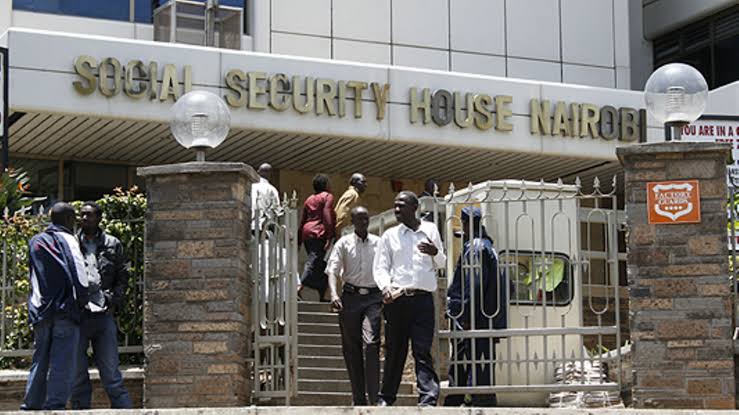The National Social Security Fund (NSSF) is facing serious questions after reports showed major financial mismanagement, making many Kenyans worried about the safety of their retirement savings.
While workers continue to make their monthly contributions, the fund has been slow in sharing its financial updates. This led to the Office of the Ombudsman, through the Commission on Administrative Justice, demanding that NSSF release its financial performance report for the year ending June 30, 2024, without delay.
A report from the Auditor General has revealed troubling issues inside the fund. Several poor investment decisions and misuse of funds have been noted, raising doubts about how well the retirement money of Kenyans is being handled.
One big concern is that NSSF failed to recover Ksh 94 million in taxes that were wrongly paid to the Kenya Revenue Authority before the fund became tax-exempt. This error has caused a loss of potential interest that could have helped retirees.
Another major problem involves a land deal in Upper Hill, Nairobi, where NSSF spent Ksh 115 million on a parcel that turned out to be public land. The title deed was revoked in 2010, turning the entire investment into a loss.
This is just one example of poor judgment in the fund’s real estate investments. Between 2023 and 2024, NSSF also put money into two companies whose market value dropped by 17.64%, causing a loss of over Ksh 27 million.
The Auditor General was not able to confirm the true value of the money in these investments, raising serious concerns about whether these deals were real or properly evaluated.
In another case, NSSF is still holding shares in a bank that is making losses, with those shares valued at Ksh 38 million. The report also points to the purchase of government bonds worth Ksh 12 billion, which were bought at a premium of more than Ksh 500 million.
These bonds were later sold at a capital loss of Ksh 272 million, adding to the fund’s financial troubles.The Auditor General’s findings also show that NSSF owns five properties in Nairobi’s Central Business District worth over Ksh 4 billion, but these buildings are not in use.
At the same time, the fund is owed nearly Ksh 13 million in rent from eight tenants, some of whom have taken the matter to court. NSSF’s spending also came under fire, with over Ksh 317 million spent on travel, meetings, and conferences, often involving suppliers who were not properly registered.
It also spent more than Ksh 51 million on motor vehicle operations and over Ksh 450 million on renovations and property purchases.
Despite spending billions, NSSF failed to reach its own membership target, registering 556,300 new members instead of the expected 650,000. This means a shortfall of about 14%.
Meanwhile, trustees of the fund received nearly Ksh 69 million in emoluments, all drawn from the fund’s administrative costs, which totaled Ksh 6.9 billion.







Leave feedback about this